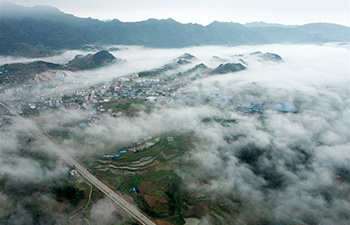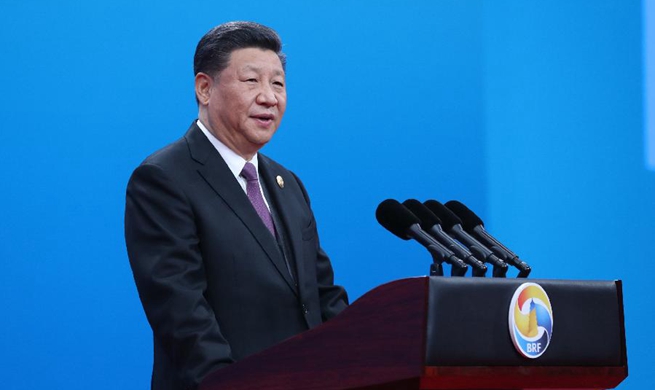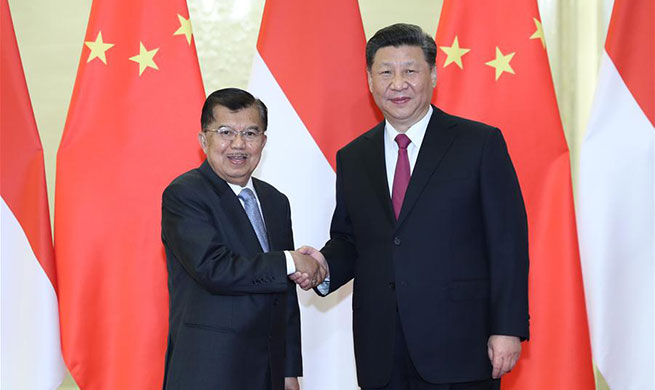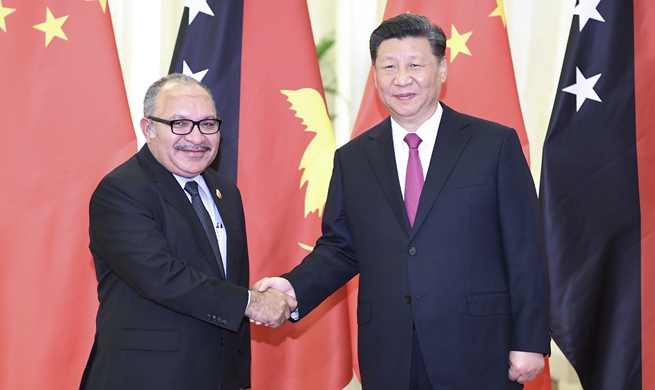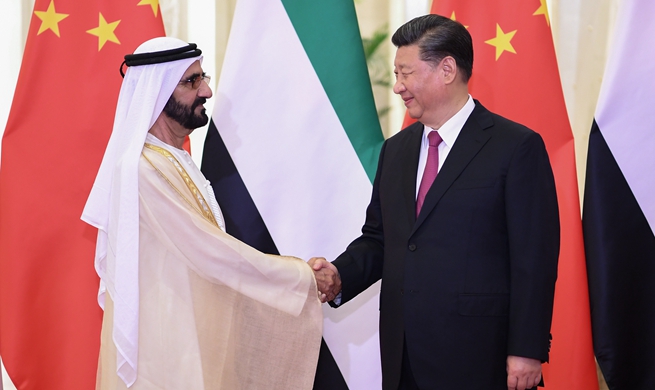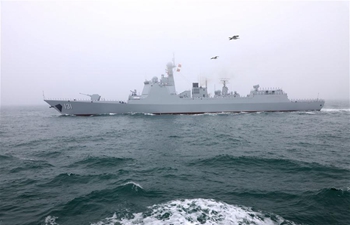ULAN BATOR, April 26 (Xinhua) -- China's Belt and Road Initiative (BRI) is providing great economic opportunities for landlocked countries like Mongolia, Mongolian Minister of Road and Transport Development Byambasuren Enkh-Amgalan has said.
The initiative, a reference to the Silk Road Economic Belt and the 21st Century Maritime Silk Road, was proposed by China in 2013 with the aim of building a trade and infrastructure network connecting Asia with Europe and Africa along the ancient the Silk Road and beyond.
"The BRI provides huge economic opportunities for landlocked countries like our country by mitigating their disadvantages of geographical position," Enkh-Amgalan told Xinhua in a recent interview.
Enkh-Amgalan is accompanying President Khaltmaa Battulga on a state visit to China and participating in the second Belt and Road Forum for International Cooperation on April 24-28.
"Thus, Mongolia has actively participated in the BRI construction from the onset in order to accelerate its economic development by reducing the disadvantages associated with the lack of access to the sea," he noted.
The Mongolian government has adopted a national program called "Development Road," with the aim of intensifying the country's development in a wide range of areas, such as road and transport, energy, telecommunications, mining and tourism, and enhancing infrastructure connectivity with foreign countries, especially with neighboring countries to lower transport costs and facilitate trade, the minister said.
The government has been striving to accelerate the integration of the Development Road program with the BRI, he said.
"The China-Mongolia-Russia economic corridor is an important part of the BRI, and intensifying this trilateral economic corridor is now more important for us," he said, stressing that the three sides have agreed to implement three major projects, including reforming the central railway corridor and building a highway connecting Asia and Europe through the territory of Mongolia.
The Mongolian minister expressed confidence that building the tripartite economic corridor under the BRI will contribute greatly to regional development and prosperity.
Moreover, the number of China-Europe freight trains traveling through Mongolia has been dramatically increasing in recent years, making great contributions to the Mongolian economy, Enkh-Amgalan said.
Mongolia will further support the freight rail service by creating favorable conditions for freight trains to travel through Mongolian territory without any obstacles, he added.
There were only 10 China-Europe freight trains traveling through Mongolia in 2014 and the number reached around 900 last year, according to the minister.




